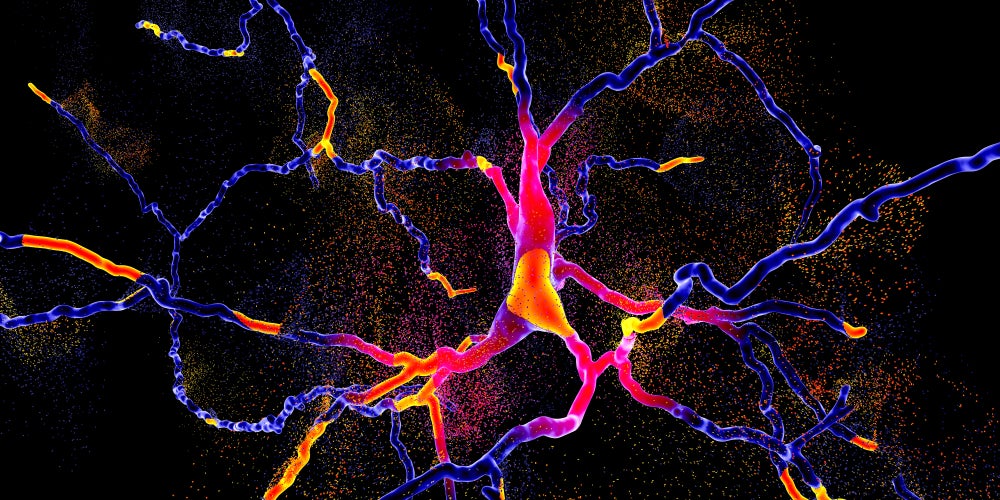
Parkinson’s disease is a neurodegenerative disease in which parts of the brain become progressively damaged over the course of many years, leading to severe motor impairment.
The disease is caused by the death of nerve cells in part of the brain called the substantia nigra, which leads to a reduction of dopamine, a chemical that plays a vital role in regulating body movements. It is not currently known what causes the loss of nerve cells in the brain.

Discover B2B Marketing That Performs
Combine business intelligence and editorial excellence to reach engaged professionals across 36 leading media platforms.
More than ten million people are living with Parkinson’s worldwide, and there is no cure – but researchers and pharmaceutical companies alike are working to develop potential vaccines that could prevent people from developing the condition.
How would a Parkinson’s vaccine work?
Parkinson’s is associated with the accumulation of Lewy bodies – tiny deposits of a protein called alpha-synuclein (a-syn) – in the brain. Preventing the build-up of Lewy bodies and removing existing clumps could be an effective way to treat the disease.
Current approaches to Parkinson’s vaccines involve the introduction of a molecule that induces the body to produce its own antibodies against a-syn, resulting in active immunity. It is hoped the antibodies will cling to a-syn build-ups and help to break them down.
Projects in the pipeline
A Phase I trial of Affitope PD01A, a compound developed by clinical-stage biotech AFFiRiS, demonstrated the vaccine candidate’s long-term safety, efficacy and tolerability. In the study, PD01A appeared to provide the longest benefit when administered as an initial shot followed by a booster.

US Tariffs are shifting - will you react or anticipate?
Don’t let policy changes catch you off guard. Stay proactive with real-time data and expert analysis.
By GlobalDataIn 2020, AFFiRiS announced it was preparing to advance PD01A into Phase II trials. This July, neurodegenerative disease-focused AC Immune acquired AFFiRiS’s portfolio of therapeutics targeting alpha-synuclein, including the company’s Parkinson’s vaccine candidate.
AC Immune has said it will immediately launch clinical development of ACI-7104, the optimised formulation of PD01A, into an adaptive, biomarker-based Phase II study. The trial will evaluate an initial dose-response of ACI-7104, focusing on immunogenicity against a-syn and pathological a-syn species. The progression of motor and non-motor symptoms of Parkinson’s disease will also be monitored, along with digital, imaging and fluid biomarkers.
Another Parkinson’s vaccine candidate is UB312, a synthetic peptide-based vaccine developed by United Neuroscience, which recently merged with COVAXX to form biotech company Vaxxinity. UB312 is currently in Phase I trials to assess its safety, tolerability, and immunogenicity in healthy participants and in participants with Parkinson’s disease. The study is expected to be completed in June 2022.


